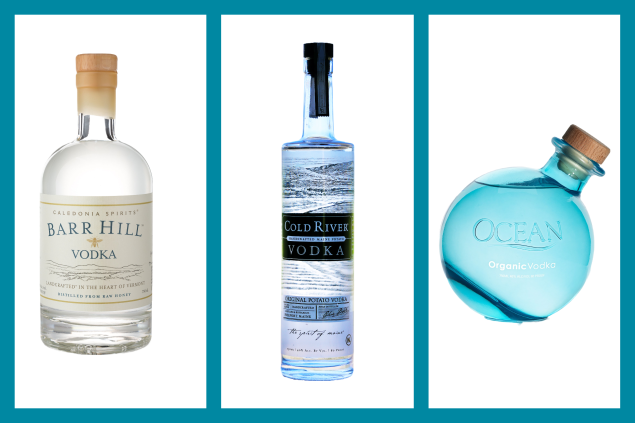Despite many people having a preference for a particular type of liquor, vodka has remained the most popular and valuable spirit in the U.S. since surpassing whiskey as the best-selling spirit in 1976. While vodka has maintained its popularity over the years, agave spirits like tequila have been encroaching on its top spot in recent years and have the potential to succeed the category by the end of 2023.
As a result, vodka producers have been innovating with new and exciting varieties to keep the attention of loyal customers. This includes techniques such as premiumization, introducing new flavors, and developing ready-to-drink beverages (RTDs). Brands have also been exploring new production techniques, including emphasizing non-grain vodkas, to provide customers with unique and distinct options.
Overall, while vodka has continued to be the most popular spirit in America, brands are always exploring new ways to innovate and keep up with the ever-changing preferences of consumers. Whether through premiumization, new flavors, or non-grain vodkas, there’s no doubt that vodka will continue to remain one of the most popular spirits in the U.S. for years to come.
Non-grain vodkas are becoming increasingly popular among distillers and consumers alike, as they offer a unique and refreshing twist on the traditional grain-based vodka. While traditional vodkas are produced by fermenting grains such as wheat, rye, and corn, non-grain vodkas are made using fruit or vegetable bases, resulting in a spirit with a distinct and often fruity character.
One example of a non-grain vodka is Hangar 1 Vodka, which is made in California using a blend of Viognier grapes and Midwestern wheat. The resulting spirit is smooth and delicate, with a subtle, fruity aroma that is perfect for sipping or mixing in cocktails. Another example is Square One Organic Vodka, which is made using sustainably-grown American rye and pure water from the Teton Mountains. This vodka is organic, gluten-free, and has a smooth, clean taste that makes it a popular choice among health-conscious consumers.
But perhaps one of the most unique non-grain vodkas is Pau Maui Vodka, which is distilled from Maui Gold pineapples. This tropical twist on vodka has a clean, pure flavor that is not at all reminiscent of pineapples, making it perfect for mixing in cocktails or enjoying neat. Similarly, Cold River Vodka is made from potatoes instead of grains, resulting in a velvety-smooth spirit with a classically clean and crisp taste.
One thing that sets non-grain vodkas apart from their traditional counterparts is the process of production. For example, Pau Maui Vodka is made by distilling the juice of the Maui Gold pineapple, while Cold River Vodka uses whole Maine potatoes. Other non-grain vodkas may be made using a fruit or vegetable mash that is fermented and then distilled.
Despite the variations in base ingredients and production methods, non-grain vodkas generally follow the same path as traditional vodkas once they are distilled. After distillation, the spirit is typically filtered, diluted with water to achieve the desired level of alcohol content, and then bottled.
One of the major advantages of non-grain vodkas is the range of flavors they can offer. While traditional grain-based vodkas generally offer a clean and neutral taste, non-grain vodkas can provide a unique and often fruity character that opens up a whole new realm of possibilities for cocktail creation.
For example, Hangar 1 Vodka’s subtle grape aroma and flavor make it a great choice for fruity, refreshing cocktails, while Pau Maui Vodka’s clean, pure taste lends itself well to tropical concoctions like the Lei Over or Porch Crawler. Square One Organic Vodka’s smooth, clean flavor makes it a versatile choice for a range of cocktail styles.
In summary, non-grain vodkas are an innovative twist on the traditional grain-based vodka production process, using fruits and vegetables to create unique spirits with a range of flavors. Their production methods vary, but they are generally distilled, filtered, diluted, and bottled like traditional vodkas. Their unique flavor profiles open up new opportunities for cocktail creation and make them a valuable addition to any spirits collection.
While non-grain vodkas may not be considered groundbreaking, they are gaining significant attention in recent times. These vodkas offer a compelling option for those who avoid grain or simply seek new experiences. According to Chris Hanson, co-owner and master distiller at Hanson of Sonoma, the changing American palate is becoming more receptive to unique flavors and non-traditional spirits. Hanson also highlights the advantages of using grapes instead of grains as a base, including a more floral quality, reduced throat burn, and a lingering salinity that provides a coating mouthfeel. The specific qualities of different vegetables and fruits used as vodka bases will naturally vary.
For instance, Upstate Vodka utilizes locally sourced apples, which are pressed to extract their liquid. This liquid is then fermented with Kosher yeast. Although this process takes three times longer than the traditional grain technique, the result is a remarkably cleaner and smoother vodka with a subtle apple finish.
If you’re eager to explore more distinctive non-grain vodkas currently available on the market, read on.
Hanson of Sonoma
Hanson of Sonoma is a small-batch, family-owned vodka brand that exclusively uses 100% certified organic grapes as the base for their non-grain vodka. They make the vodka base by distilling grapes that have already been used to make wine. They launched their brand in Sonoma in 2013 and partner with Ceja Vineyards, a family-owned, third-generation winery, to create their vodka base.
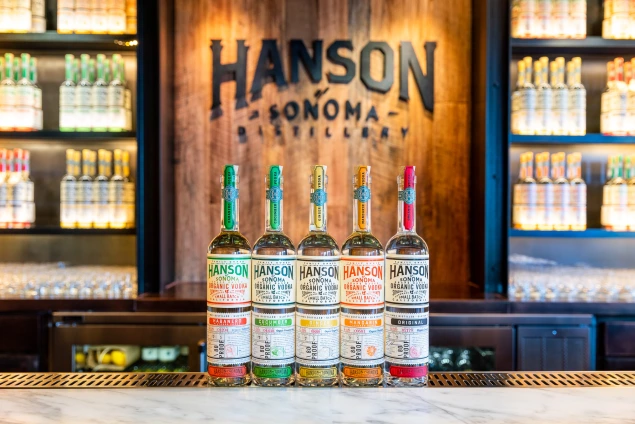
Hanson of Sonoma’s original vodka boasts a perfect balance of floral and savory notes, offering a unique twist on traditional grain-based vodkas. This makes it an excellent choice for cocktails, such as a Vesper or dirty martini, especially when garnished with Castelvetrano olives. Additionally, Hanson of Sonoma offers infused vodka flavors, which are made using locally-sourced fruits and vegetables. They offer seasonal flavors like Cucumber Mandarin and Meyer Lemon.
These infused vodka offerings from Hanson of Sonoma add a whole new level of complexity and depth to classic cocktails. The Cucumber Mandarin, for instance, pairs especially well with ginger beer and a twist of lime, while the Meyer Lemon adds a zesty kick to drinks like the Lemon Drop or a Cosmopolitan.
One of the key differentiators for Hanson of Sonoma is their commitment to organic farming practices. By using 100% certified organic grapes and partnering with a local, family-owned winery, they ensure that their ingredients are sustainably sourced and of the highest quality. Furthermore, their small-batch production ensures that each bottle is carefully crafted and of superior quality, making this brand one to watch in the non-grain vodka market.
Upstate Vodka
Upstate Vodka is unique in that it is made by master distiller Ken Wortz by pressing 70 to 80 apples sourced from New York state farms for every bottle. After pressing the apples, the liquid is fermented with Kosher yeast and then twice distilled in 16- and 18-plate two-column stills, resulting in a purer distillate than the pot still, which is often better suited for flavored spirits.
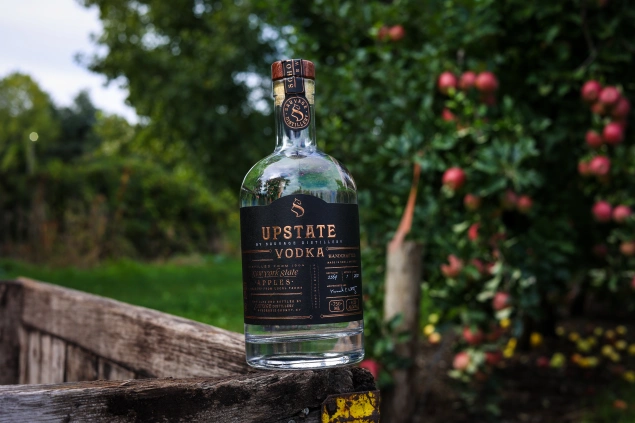
One of the defining characteristics of Upstate Vodka is its subtly sweet, natural taste and crisp mouthfeel. While not technically considered a “flavored” vodka, the natural sweetness of Upstate Vodka makes it a great base for creative cocktails such as the brand’s Spiced Cider recipe, made with lemon juice, chai tea syrup, and apple cider, or a cranberry gimlet.
Every bottle of Upstate Vodka is produced and bottled at the brand’s facility in Charlotteville, New York. The use of local apples from New York state farms speaks to the brand’s commitment to using high-quality, sustainable ingredients.
In addition, the use of column stills rather than pot stills in the distillation process results in a smoother, cleaner vodka that can be enjoyed equally well neat or in cocktails. The Kosher yeast used in the fermentation process adds a special touch and speaks to the quality and attention to detail that Upstate Vodka is known for.
In summary, Upstate Vodka is a unique premium vodka made from locally sourced New York state apples and fermented with Kosher yeast. Its two-column distillation process results in a clean, pure flavor profile that can be enjoyed straight or in creative cocktails. The brand’s commitment to quality and sustainability, as well as its use of local ingredients, make it a standout in the crowded vodka market.
Vusa Vodka
Vusa Vodka is a premium vodka brand from KwaZulu Natal, South Africa, that is made using locally sourced sugarcane. The triple distillation process and single filtration work together to create an exceptionally smooth and silky vodka that is a delight to sip or mix in cocktails.

What sets Vusa Vodka apart is the single filtration process, which helps retain unique flavors and aromas like herbal notes of eucalyptus and soft grassiness that contribute to its individuality. This makes it an excellent choice for those looking to experiment with new flavors and add a touch of South African flair to their cocktail creations.
Vusa Vodka is a versatile spirit that can be enjoyed in various ways, such as sipping it on the rocks with a lime wheel to bring out its natural flavors. Alternatively, it can be incorporated into a classic cocktail like a Moscow Mule with a twist, using hibiscus syrup instead of or in addition to lime and ginger beer.
In addition to its delicious taste, Vusa Vodka also has a strong commitment to social responsibility. The brand works in partnership with local sugar cane growers to ensure sustainable sourcing practices and invests in education and healthcare initiatives for the surrounding communities.
Overall, Vusa Vodka is an excellent choice for those looking for a smooth and unique vodka that blends the natural flavors of South African sugarcane with a delicate eucalyptus finish. Its versatility and commitment to social responsibility make it a standout in the premium vodka market.
Pau Maui Vodka
Hali’imaile Distilling Company in Maui, Hawaii, uses the island’s abundant resource of Maui Gold pineapples to create their unique Pau Maui Vodka. Pau Maui Vodka is the only vodka in the world distilled from this specific type of pineapple, which is known for its high sugar content and superior fermentation properties.

Despite being distilled from pineapples, Pau Maui Vodka does not have any hints or aromas of pineapple. Instead, it is exceptionally crisp and pure, thanks to the single distillation in 14-foot columns made of 100% pharmaceutical-grade glass stills. This unique distillation process creates an exceptionally clean and smooth vodka that is perfect for sipping or mixing in cocktails.
Pau Maui Vodka is a great choice for tropical cocktails like the Lei Over, made with elderflower, orange juice, lime bitters, and coconut water, or the Porch Crawler, made with lemonade concentrate and light beer. The versatility of this vodka shines through in cocktails, as well as its stand-alone crisp taste.
What makes Pau Maui Vodka stand out in the crowded vodka market is its unique taste profile and production process. The use of Maui Gold pineapples, along with the careful and meticulous distillation process, results in a truly exceptional vodka. The single distillation process uses less energy, water, and other resources, making it a sustainable and eco-friendly option as well.
Overall, Pau Maui Vodka from Hali’imaile Distilling Company is a standout vodka that brings a taste of the tropics to your glass. Its versatility and unique production process make it a must-try for vodka enthusiasts seeking something different.
Barr Hill Vodka
Caledonia Spirits in Montpelier, Vermont, is a unique distillery that relies on bees to produce their libations. The company’s flagship product is gin made from pure raw honey, which was first introduced in 2011, and they have expanded to include a vodka as well.
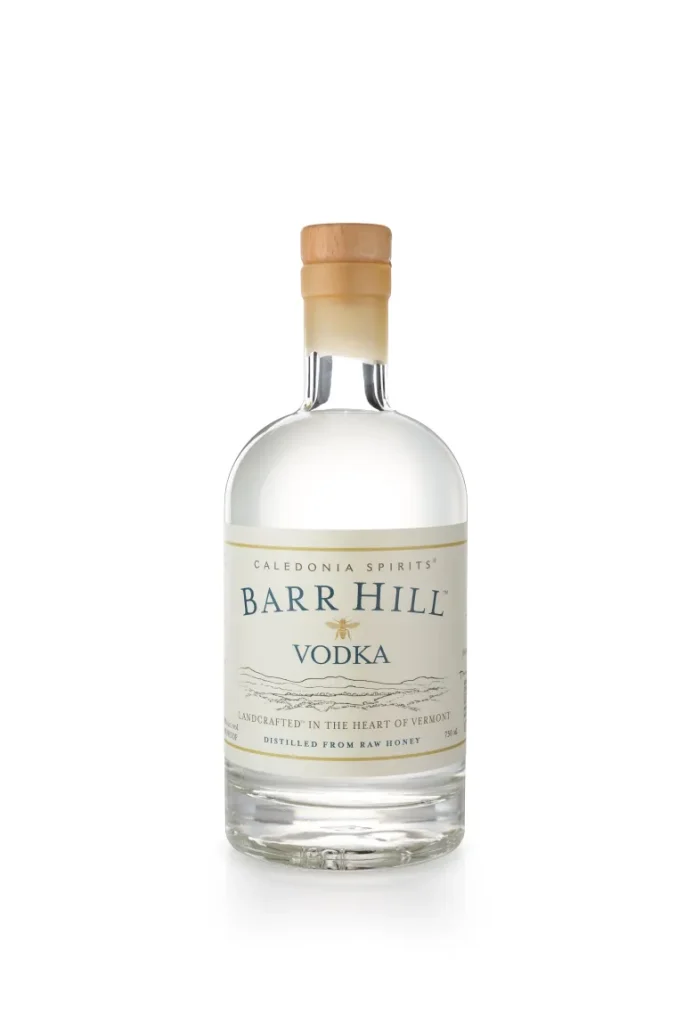
The honey used for fermentation is not heated, allowing the rich botanicals naturally found in the raw honey to be preserved. Head distiller, Ryan Christansen, only distills the product twice, which helps to maintain the wild yeast of the nectar and the unique flavors of the raw honey. Each bottle of this vodka contains four pounds of honey, which gives it a floral and subtly sweet profile that is distinct from other vodkas.
The resulting vodka from Caledonia Spirits in Montpelier, Vermont, has a unique flavor profile that is floral with a subtle honey mouthfeel and sweetness. It pairs exceptionally well in classic cocktails such as the negroni and the Bee’s Knees.
What makes Caledonia Spirits stand out is their commitment to using unprocessed and natural ingredients. By relying on bees to produce the honey used in their vodka, they ensure that their ingredients are of the highest quality. Furthermore, their careful distillation process preserves the natural flavors and botanicals found in the raw honey, creating a spirit that is truly distinct and exceptional.
Overall, Caledonia Spirits in Montpelier, Vermont, offers a unique vodka that is a pure expression of the natural ingredients used in its production. Its floral and subtly sweet flavor profile, along with its commitment to using natural and unprocessed ingredients, makes it a standout in the crowded vodka market.
Ocean Organic Vodka
Ocean Organic Vodka is a small-batch vodka inspired by the breathtaking landscape of Maui, Hawaii. The distillery is committed to operating sustainably in such a delicate ecosystem, running on renewable energy sources and using organic sugar cane for production.
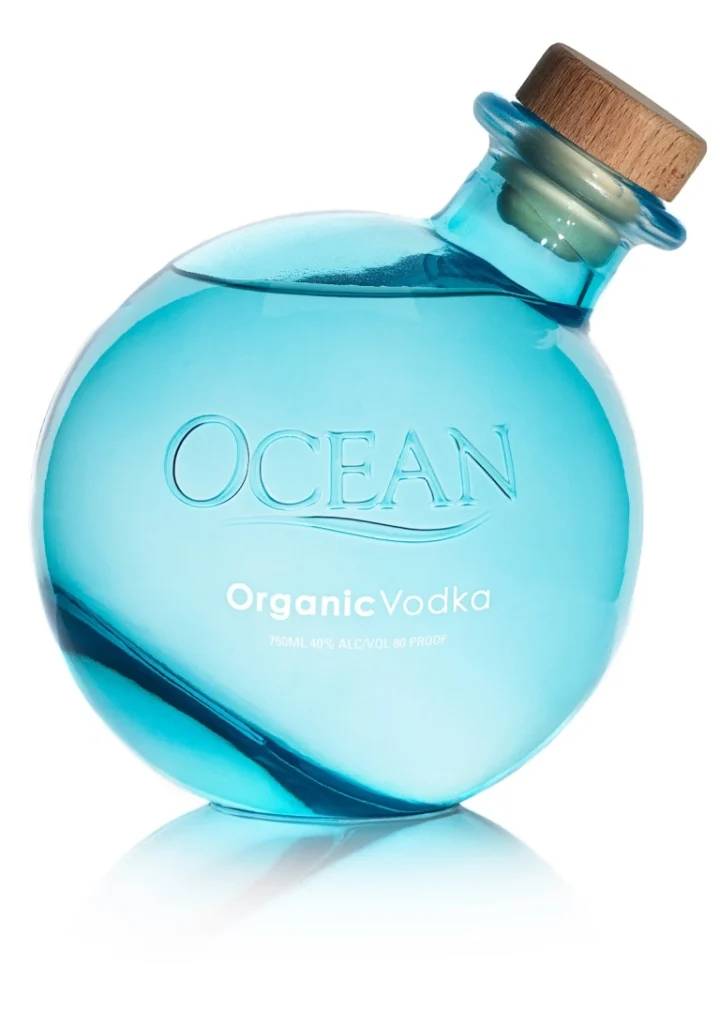
What sets Ocean Organic Vodka apart is the use of deep sea mineral water, which is drawn from 3,000 feet beneath the ocean and rich in minerals like magnesium, potassium, and calcium. This mineral water gives the vodka a smooth and velvety mouthfeel, yet it also ends with a bright finish that makes it truly unique.
While Ocean Organic Vodka is best sipped neat to fully experience its complex flavor profile, it can also be used in cocktails, such as the Coconut Water Cocktail, which calls for muddled mint leaves and a dash of agave syrup. The rich and complex flavors of the vodka pair well with the subtle sweetness of coconut water, making for a unique and refreshing cocktail experience.
Overall, Ocean Organic Vodka is a standout in the crowded vodka market thanks to its unique production process and the use of deep sea mineral water. The resulting smooth, velvety mouthfeel and bright finish make it an excellent choice for sipping and mixing in cocktails alike. Additionally, the distillery’s commitment to operating sustainably and using organic ingredients is admirable and speaks to the brand’s dedication to quality and responsibility.
Cold River Vodka
Cold River Vodka is named after Maine’s 16.7-mile long Cold River and is made using water from this source and Maine potatoes. Unlike some other vodkas that use potato starch as a base, Cold River Vodka uses whole potatoes, which gives it a unique flavor profile.

The vodka is triple distilled to achieve a classic crisp and clean flavor, which makes it perfect for sipping on its own or mixing in a classic cocktail like the martini. In addition to the classic martini, Cold River Vodka can also be used in various other cocktails, such as the Vesper, a martini-like drink, or the distillery’s own Tomato Water Martini, made with vodka, seasoned tomato water, lemon juice, and a dash of pepper sauce.
Overall, Cold River Vodka stands out among other vodkas thanks to its unique combination of Maine potatoes and water from the Cold River. The triple distillation process creates a classic crisp and clean flavor that is perfect for sipping or mixing in cocktails. Whether you’re a classic martini fan or looking to try something new, Cold River Vodka is an excellent choice that is sure to impress.
